The system of global strategic stability, which was established during the Cold War to prevent nuclear conflict and maintain the balance of power between major powers, is in a state of serious deterioration, a process that is taking place in a context of increasingly eroding trust between major countries and the disintegration of the arms control regime.
When deterrence mechanisms are no longer effective
Since the beginning of the 21st century, the United States has withdrawn from many arms control treaties that once played a key role in maintaining global stability. Washington's withdrawal from the Anti-Ballistic Missile (ABM) Treaty in 2002 marked the end of an important pillar of the bilateral Russian-American deterrence mechanism. Subsequently, efforts to revive the Conventional Forces in Europe (CFE) Treaty, which was designed to limit the militarization of Europe, also failed due to diverging interests between the parties.

During President Donald Trump’s first term, the US continued to withdraw from two other major agreements: the Open Skies Treaty and the Intermediate-Range Nuclear Forces Treaty (INF). These moves are said by analysts to reflect Washington’s desire for greater freedom of action in the field of security and defense, but at the same time, they also erode the foundation of the international arms control mechanism.
Even the New START Treaty, the last remaining treaty between the two largest nuclear powers, is in a precarious state as efforts to extend it are hampered by bilateral political tensions.
This breakdown has occurred at a remarkable pace, while the long-term consequences have not been fully assessed. Many argue that, compared to Cold War leaders like John F. Kennedy and Richard Nixon, who were strategic visionaries and willing to negotiate, recent administrations are seen as focusing on short-term gains, reflecting a shift in Washington’s security thinking. The Ukraine crisis has made that trend even clearer, as military and political confrontation has reached its highest level since 1991.
Under President Joe Biden, the increased US and NATO military presence in Europe, coupled with rhetoric about “nuclear deterrence,” has increased the risk of escalation. In many European countries, public discussion of the possibility of direct conflict with Russia is widespread, though few can fully comprehend the consequences if it actually happens.
A delicate strategic balance
In addition, two other important international documents, the Comprehensive Nuclear-Test-Ban Treaty (CTBT) and the Nuclear Non-Proliferation Treaty (NPT), are also at risk of being weakened.
Although neither the United States nor Russia is formally legally bound by the CTBT, both sides have maintained a moratorium on nuclear testing for many years, viewing it as a measure to prevent a dangerous “chain reaction.”
However, the growing influence of pro-confrontation political groups, coupled with pressure from the defense industrial complex, is raising concerns that the tests could be repeated – a serious setback for global security.

The situation for the NPT is no less worrying. In an international environment of growing distrust and fierce strategic competition, more and more countries are considering the “nuclear option” as a tool for self-security.
Some in the US political establishment have even suggested that the US should encourage its allies to reconsider their denuclearization policies, which could lead to a new wave of nuclear proliferation. If this trend continues, the international control and restraint mechanism established over the past half century could be broken, and the “gun hanging on the wall” could very well be fired.
In this context, President Donald Trump’s recent statements on the need for denuclearization, repeated in his meetings with Central Asian leaders, have not been accompanied by concrete steps to realize it. The question is whether the US can regain its leading role in restoring the arms control order or continue to pursue an extended deterrence strategy based on military power.
On the Russian side, Moscow has repeatedly affirmed that it will not accept the strategic imbalance and will react “proportionately” to any attempt to change the status quo. In the context of Russia’s military campaign in Ukraine that is still ongoing and shows no signs of cooling down, the prospect of security dialogue between the two sides seems remote.
Clearly, the world is entering a new dangerous phase, when the restraint mechanisms that have maintained peace for decades are being eroded, while channels of strategic dialogue are almost frozen.
Without serious efforts to restore trust and rebuild arms control agreements, the post-Cold War international order risks being replaced by an era of prolonged confrontation – where each country's security is increasingly tied to global insecurity.
Source: https://congluan.vn/on-dinh-chien-luoc-toan-cau-dung-truoc-phep-thu-cua-thoi-cuoc-10317462.html





![[Photo] The "scars" of Da Nang's mountains and forests after storms and floods](https://vphoto.vietnam.vn/thumb/1200x675/vietnam/resource/IMAGE/2025/11/13/1762996564834_sl8-jpg.webp)

![[Photo] Prime Minister Pham Minh Chinh attends a conference to review one year of deploying forces to participate in protecting security and order at the grassroots level.](https://vphoto.vietnam.vn/thumb/1200x675/vietnam/resource/IMAGE/2025/11/12/1762957553775_dsc-2379-jpg.webp)
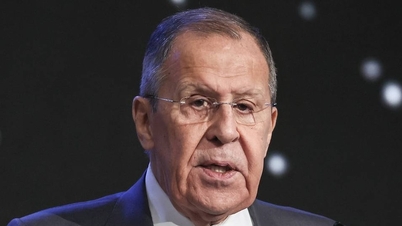


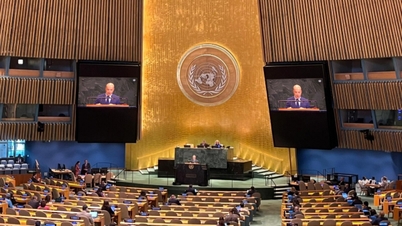

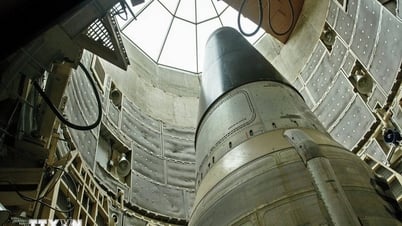





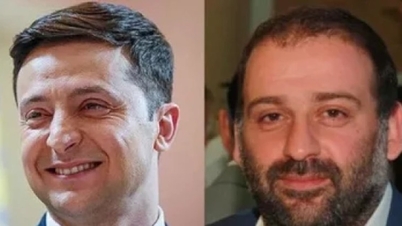
















![[Photo] Highways passing through Dong Nai](https://vphoto.vietnam.vn/thumb/1200x675/vietnam/resource/IMAGE/2025/11/12/1762940149627_ndo_br_1-resize-5756-jpg.webp)






















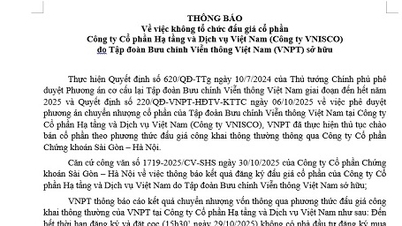




















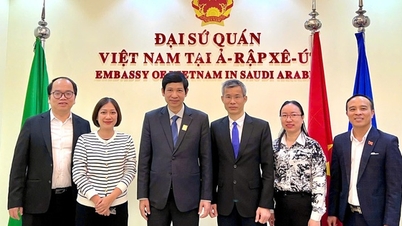

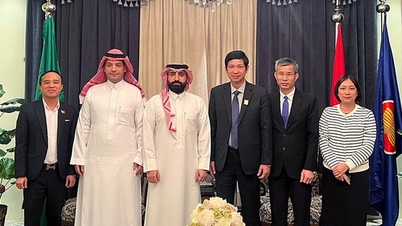






















![Dong Nai OCOP transition: [Article 3] Linking tourism with OCOP product consumption](https://vphoto.vietnam.vn/thumb/402x226/vietnam/resource/IMAGE/2025/11/10/1762739199309_1324-2740-7_n-162543_981.jpeg)








Comment (0)